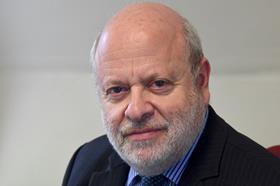While we catch our breath as change and challenge rain down on our profession, we may take cold comfort from the fact that we are not alone: judges are beginning to feel the heat, too, from the evolving expectations of a society under stress.

The Gazette reported that the American Bar Association has called for the US Supreme Court to develop its own binding code of conduct. This follows reporting that one of the justices had secretly accepted luxury vacations worth hundreds of thousands of dollars, a real estate deal (involving the home where his mother was living) and the payment of private school tuition for a grandnephew the justice was raising – and that the donor of these gifts was affiliated to conservative groups which filed amicus briefs in several matters before the Supreme Court.
You may wonder what that has to do with us, but the Financial Times reported last week that High Court judges had invested in controversial tax avoidance schemes which were challenged by HM Revenue & Customs, including one judge who has ruled on tax avoidance cases – and each has retained their interests in the schemes after taking their positions as High Court judges. Whatever one’s take, it is clearly not of the same order as the allegations against the justice of the US Supreme Court.
The UK does not require its judges to make systematic disclosures about their interests. The UK Guide to Judicial Conduct, which is written by judges themselves, merely requires judges to make ad hoc disclosures to parties in particular cases if the judge views they have any conflict of interest or if they believe there is the risk of an appearance of a conflict of interest. In other words, judges decide for themselves.
We lawyers have been under heavy pressure for years over our alleged role in facilitating tax avoidance, for instance following the Panama and Paradise Papers’ leaks. This has led to a serious debate about our ethics, for instance when something is lawful but viewed by others to be wrong. Judges have different roles, but it surely cannot be long before there is a beefed up and binding code of conduct for our judges.
The second instance of new problems afflicting judges concerns the continuing saga of climate activists being sentenced at Inner London Crown Court by Judge Silas Reid. I touched briefly on this a few months back, but the story has grown.
The furore centres around whether climate activist defendants – for instance, from Insulate Britain – are entitled to mention before the jury the reason why they blocked roads (also applicable to other protest actions, of course).
The judge gives the defendants the opportunity to outline their motivation after their conviction, on the grounds that ‘motivation is relevant to sentence’, but he says it is irrelevant to whether they committed the crime of public nuisance in the first place. Those who mention their motivation before the jury in contradiction of the judge’s instruction are sentenced for contempt of court.
Insulate Britain says that its defendants on similar charges before Hove Crown Court were not subject to similar rules of silence before the jury. Clearly, juries may be less likely to convict when they hear why otherwise ordinary, law-abiding people have taken action.
Supporters of the activists stood outside the jury entrance to the London court recently holding signs saying ‘Jurors – you have an absolute right to acquit a defendant according to your conscience’. Judge Reid ordered their arrest, one was summoned to court and told her case had been referred to the attorney general.
Supporters just increased the pressure. Last week, a group of around 24 people sat silently close to the jurors’ entrance with similar signs. They were not warned or asked to move by court officials, and no arrests were made, but at the end of the trial Judge Reid indicated that they would also be referred to the attorney general. This looks as if it may escalate.
Earlier this month, with the publication of ‘The Carbon Circle: The UK Legal Industry’s Ties to Fossil Fuel Companies’, lawyers from big law firms faced heavy criticism for their facilitation of £1.48 trillion in fossil fuel projects, far outweighing their work for the renewable energy industry (£546 billion). Now we see judges, too, facing heavy pressure at the intersection between law and justice, although of course in a different context to lawyers.
Lawyers are private actors, with an element of choice. Judges are state actors who have been seen as above the fray. But as the two examples of tax avoidance and climate change show, judges are now as much in the mêlée as we are.
Jonathan Goldsmith is Law Society Council member for EU & International, chair of the Law Society’s Policy & Regulatory Affairs Committee and a member of its board. All views expressed are personal and are not made in his capacity as a Law Society Council member, nor on behalf of the Law Society































No comments yet